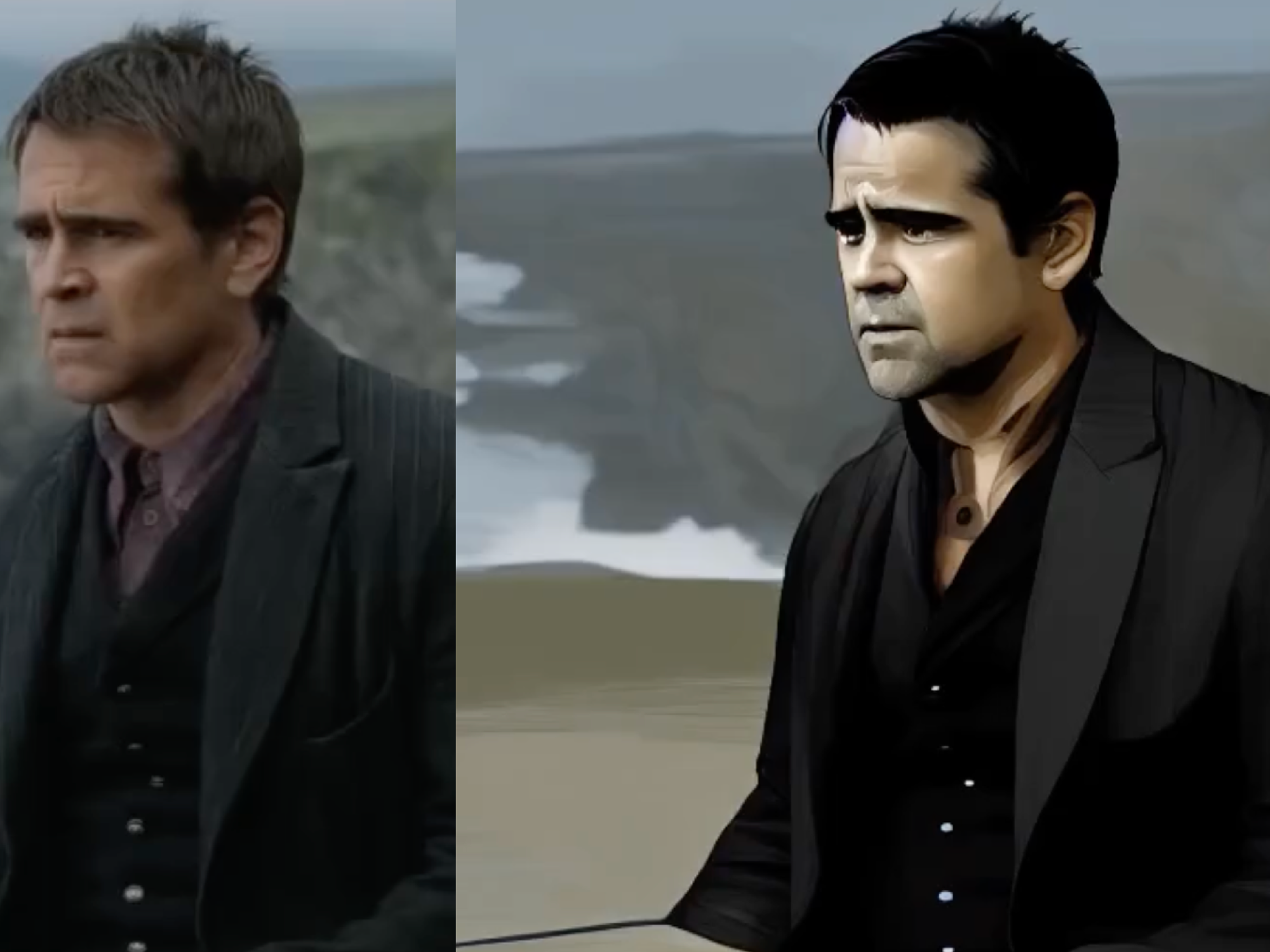Storia is Betting Big on Hollywood’s Desire for AI Video Production
Samson Amore is a reporter for dot.LA. He holds a degree in journalism from Emerson College. Send tips or pitches to samsonamore@dot.la and find him on Twitter @Samsonamore.

Traditionally, becoming a professional video editor takes years of experience, long hours and an often maddening struggle against complicated software. As such, it’s a field with a high skill barrier to entry. In Hollywood, especially, it’s rare to become a film editor without a formal education in the field.
But that reality shows signs of shifting. Especially with the help of emerging generative AI tools that help filmmakers realize their vision in minutes rather than years.
One such tool comes from Storia AI, a remotely based startup with a footprint in Los Angeles and San Francisco that’s developing a generative AI for film and TV pre-production. Storia’s technology takes simple text prompts (for example, “show me this script in the style of Alfred Hitchcock,” and turns them into short video clips or storyboards.
The startup recently showed off its tech at work on several Academy Award-nominated films, by way of presenting what the Oscar-winning film “Everything Everywhere All at Once” would look like as a zombie horror film, or editing “The Banshees of Inisherin” in the style of a cartoon. Storia AI cofounder Mihail Eric said overall, the response was positive, noting that for some, it was the first time they’d seen such tech in action. The goal was to show off Storia’s capabilities and also educate people about the potential ways to leverage AI in video editing and pre-production, Eric said.
Eric launched the company in December 2022 with co-founder Julia Turc in December 2022 and has since raised “a couple hundred thousand” from investors including Madrona Venture Labs so far. The plan is to begin selling its AI storyboarding and editing software as a subscription, Eric said.
The idea, according to Eric, is to leverage Storia AI’s tools to help someone with “no visual sensibilities” create a fully-fledged visual work in a short time with limited skills. A longtime developer of AI, Eric studied natural language processing at Stanford and worked at Amazon as a senior machine learning scientist for its Alexa AI for two and half years before co-founding Storia. He said his goal with the company is to enable people with an artistic concept, but not the skills to realize a fully fledged film.
In addition to its video editing tool Storia AI also sells a product called StoriaBoard, which uses AI to pre-visualize movie scripts. By plugging in a script, and choosing from either a dropdown list of pre loaded films (like Steven Spielberg’s “Jaws” or Orson Welles’ “Citizen Kane”), the AI will create a visual representation of the script’s major beats. This looks like a typical storyboard format but will match the tone of the selected work.
“The creative process is about taking inspiration from things, using one source to inspire another idea… and using that to sort of conglomerate and form, and evolve your own vision,” Eric said. “That previsualization, the preproduction, is about fast iteration, it’s about experimentation. If you don’t have visual sensibilities, you won’t be able to draw even a single alternative [idea], but a tool like what we build enables you to very quickly try a bunch of different things.”
That said, Hollywood remains mixed on the prospect of using AI to create content. There is, of course, the valid concern that AI will replace the jobs of highly skilled editors. Though Eric said he sees tools like Storia AI’s not as job replacers but enablers. “Traditional painting of the 1500s is not something that's really done that much today,” he said “If you just imagine the natural evolution of the profession, you’re going to have to learn new tools.”
To Eric’s credit, AI is already being used to de-age celebrities like Harrison Ford in “Indiana Jones.” A similar tool made by startup Metaphysic signed a partnership with the Creative Artists Agency in January. But AI can also apply to sound: Dolby’s Atmos technology uses AI to map the acoustics of a room and determine how much sound output it needs to be truly immersive for the audience. And while it’s not tailored just for film or TV production, generative image software Midjourney can be used to storyboard.
Currently, Storia AI has some clients, mainly local independent filmmakers, according to Eric. Though he did say he hopes the tool becomes more widely used by aspiring creatives in the future.
“Our goal at Storia AI is to change the landscape of how [production] is done,” Eric said. “We believe we’re uniquely able to provide [this] because of our deep experience in AI.”
- We Asked Our Readers How They’re Using AI in a Professional Setting. Here's What They Said ›
- 'You Talking to Me?' This New Startup Uses Deepfake Technology for Movie Dubbing ›
- Filmmaker Darren Aronofsky Doesn’t Think A.I. Is Strong Enough to Replace Human Creatives…Yet ›
- A Decentralized Disney Is Coming. Meet the Artists Using AI to Dethrone Hollywood ›
- Writers Are Fighting To Save Their Jobs From AI Chatbots. - dot.LA ›
Samson Amore is a reporter for dot.LA. He holds a degree in journalism from Emerson College. Send tips or pitches to samsonamore@dot.la and find him on Twitter @Samsonamore.



 Image Source: Revel
Image Source: Revel
